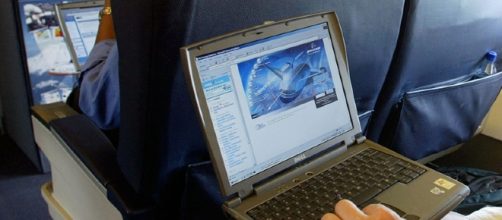Because of the real threat from terrorists, Homeland Security Secretary John Kelly said he may extend the ban on laptops to all international flights in and out of the U.S. It will expand the current ban on electronic gadgets bigger than a mobile phone that covered ten airports in North Africa and the Middle East.
Kelly pointed out that terrorists are now obsessed with the idea of knocking down an aircraft in flight, The Wall Street Journal reported. In early May, the department said expanding the ban is under study. The wider ban aims to address the possibility that an explosive device could be hidden inside a gadget and manually triggered through power sockets in the jet or in the cabin.
Aviation groups against expanded ban on laptops
Since air travel is often long, including more hours spent inside the airport while waiting to board the plane, many travelers bring laptops, tablets, and other electronic gadgets besides their smartphones to catch up with work. According to a poll made by the Airline Passenger Experience Association, a trade group, 43 percent of air travelers carry with them a tablet aboard the cabin. About 70 percent of them use the tablet while in-flight.
The study also found that 38 percent bring their laptops in the cabin, and 42 percent use the device. In March, the International Air Transport Association, a global trade group, supported the call to keep flights safe by asking governments to work with the aviation industry.
However, IATA was not in favor of passengers being separated from their personal electronic devices.
IATA seeks alternative measures
IATA, which then was speaking on behalf of the affected passengers from the Middle East and North Africa, said the current measures were not acceptable as a long-term solution. The organization said that it was difficult to understand the Laptop ban’s effectiveness. IATA described the commercial distortions the prohibition created as severe, Alexander de Juniac, director-general and CEO of IATA, said.
De Juniac pointed out that passengers were asking why the ban by the U.S. covered ten airports, while a similar ban by the UK only had six gateways. He bewailed the lack of prior consultation and coordination with governments on the ban.
The IATA CEO said although security is the primary responsibility of governments, the aviation industry shares the priority of keeping passengers, crew, and the airplane secure. Intelligence is of utmost importance and must be shared among governments and with the aviation industry, de Juniac said.


